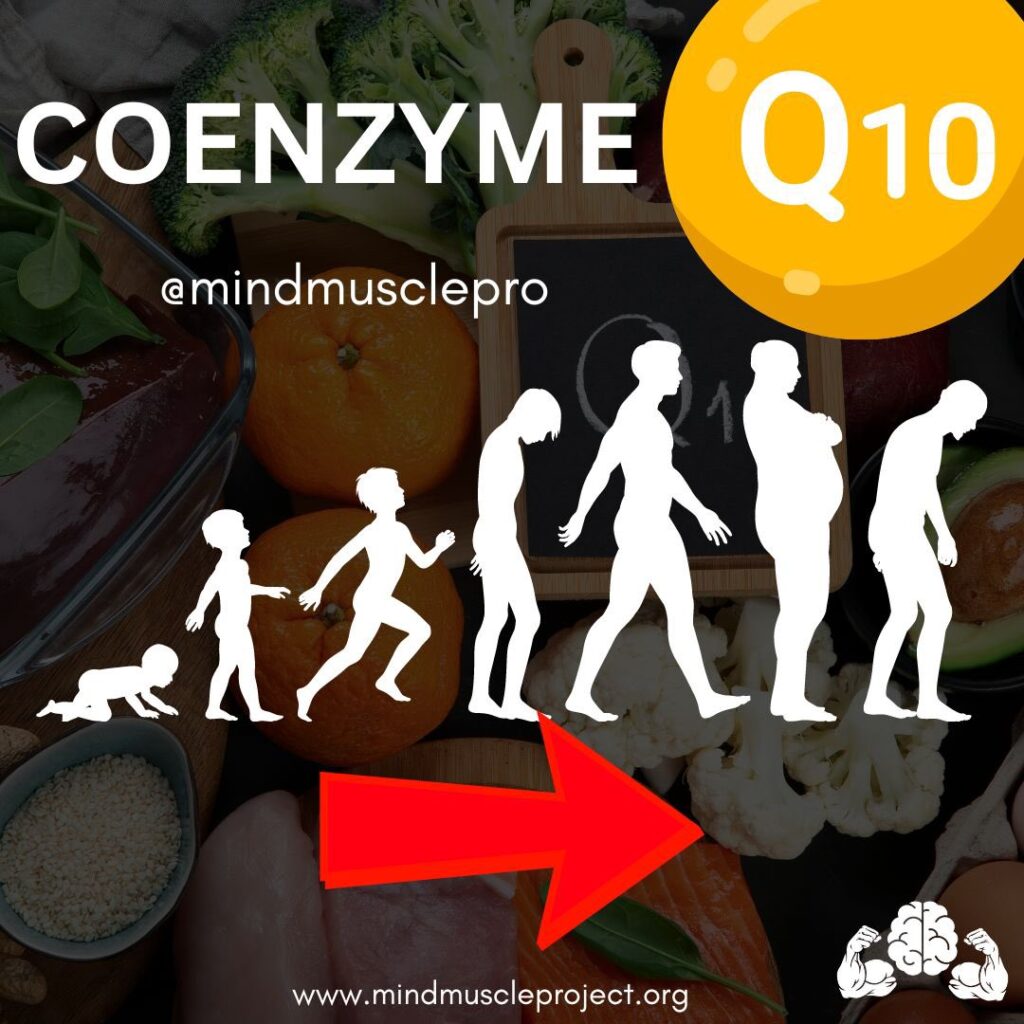CoQ10 (Coenzyme Q10) is a powerful compound that plays a critical role in cellular energy production and acts as a potent antioxidant. It is vital for metabolic health, mitochondrial function, and overall well-being. While your body produces CoQ10 naturally, its levels decline with age, inflammation, and certain medications, making it essential to focus on maintaining optimal levels through diet or supplementation.
In this post, we’ll explore what CoQ10 is, its benefits, symptoms of deficiency, and how to ensure you’re getting enough.
What Is CoQ10 and Why Is It Important? #
CoQ10 is a fat-soluble coenzyme present in every cell of your body. It is essential for:
- Cellular energy production: CoQ10 helps the mitochondria (the “powerhouses” of cells) generate ATP, which is your body’s main energy source.
- Antioxidant defense: It protects cells from oxidative damage caused by free radicals, promoting better health and longevity.
Although CoQ10 is naturally produced by the body and can also be obtained through food, its production declines with age. By supporting your CoQ10 levels, you can optimize energy, improve overall function, and reduce age-related decline.
Key Functions and Benefits of CoQ10 #
CoQ10 offers numerous benefits for your body and mind:
- Boosts Energy Levels and Stamina: By enhancing mitochondrial function, CoQ10 increases energy production, helping combat fatigue and improve physical performance.
- Reduces Body Aches: Low levels of CoQ10 are linked to muscle pain, and supplementation may reduce aches and discomfort.
- Increases Libido: It supports energy levels and blood flow, contributing to a healthier sex drive.
- Improves Cardiovascular Function: CoQ10 improves heart health by supporting energy production in heart cells and reducing oxidative stress.
- Enhances Mood: By reducing inflammation and oxidative stress, CoQ10 helps improve mood and emotional balance.
- Improves Cognitive Function: It protects brain cells from oxidative damage and supports cognitive clarity, reducing symptoms of brain fog.
- Supports Healthy Vision and Hearing: CoQ10 protects sensory cells and may slow age-related vision and hearing decline.
- Promotes Healthier Skin: By reducing oxidative stress, CoQ10 improves skin elasticity and reduces wrinkles.
Symptoms of Low CoQ10 Levels #
As your body’s natural CoQ10 production declines due to aging, inflammation, or medication use, you may experience symptoms such as:
❌ Brain Fog
❌ Low Energy and Fatigue
❌ Decreased Cognitive Function
❌ Vision Problems
❌ Wrinkled Skin
❌ Body Pain or Muscle Aches
These symptoms can worsen over time, highlighting the importance of maintaining sufficient CoQ10 levels.
Who Needs More CoQ10? #
While healthy individuals produce sufficient CoQ10, certain groups are at risk of deficiency and may benefit from external sources:
- Older Adults: Natural production declines significantly with age.
- Those with Chronic Inflammation: Inflammation can impair CoQ10 synthesis.
- Individuals on Certain Medications: Drugs like statins, antidepressants, and diabetes medications can deplete CoQ10 levels.
- Statins (cholesterol-lowering drugs) are particularly notorious for reducing CoQ10 production.
If you’re taking any of these medications, consult your doctor about whether CoQ10 supplementation is necessary.
Dietary Sources of CoQ10 #
To maintain healthy CoQ10 levels, focus on foods that naturally contain this vital compound.
Primary Sources (Rich in CoQ10): #
- Meat (especially organ meat like liver and heart)
- Chicken
- Fatty Fish (salmon, mackerel, sardines)
- Butter
- Egg Yolks
Secondary Sources (Moderate CoQ10 Content): #
- Avocado
- Strawberries
- Apples
- Pistachios and Walnuts
- Sesame Seeds
- Broccoli and Cauliflower
- Sweet Potato
- Extra Virgin Olive Oil
While these foods provide CoQ10, dietary intake alone may not be enough for individuals with significant deficiency or increased needs.
CoQ10 Supplements: When and Why? #
CoQ10 supplements are widely available and can be beneficial for:
- Older adults or individuals experiencing chronic fatigue.
- People with cardiovascular conditions, cognitive decline, or high inflammation.
- Those on statins or other medications that deplete CoQ10.
CoQ10 supplements are generally well-tolerated, but always consult your doctor before starting supplementation, especially if you’re on medications.
Takeaway: Prioritize Your CoQ10 Levels for Energy and Health #
CoQ10 is a powerful compound essential for cellular energy, antioxidant defense, and overall well-being. Its decline with age, inflammation, or certain medications can lead to symptoms like fatigue, brain fog, and muscle pain.
Here’s what you can do to maintain optimal CoQ10 levels:
✅ Include CoQ10-rich foods like meat, fatty fish, and egg yolks in your diet.
✅ Add secondary sources like avocado, broccoli, and nuts for variety.
✅ If you’re on medications (like statins), consult your doctor about CoQ10 supplementation.
By prioritizing CoQ10, you’ll support your energy levels, heart health, cognitive function, and longevity.





